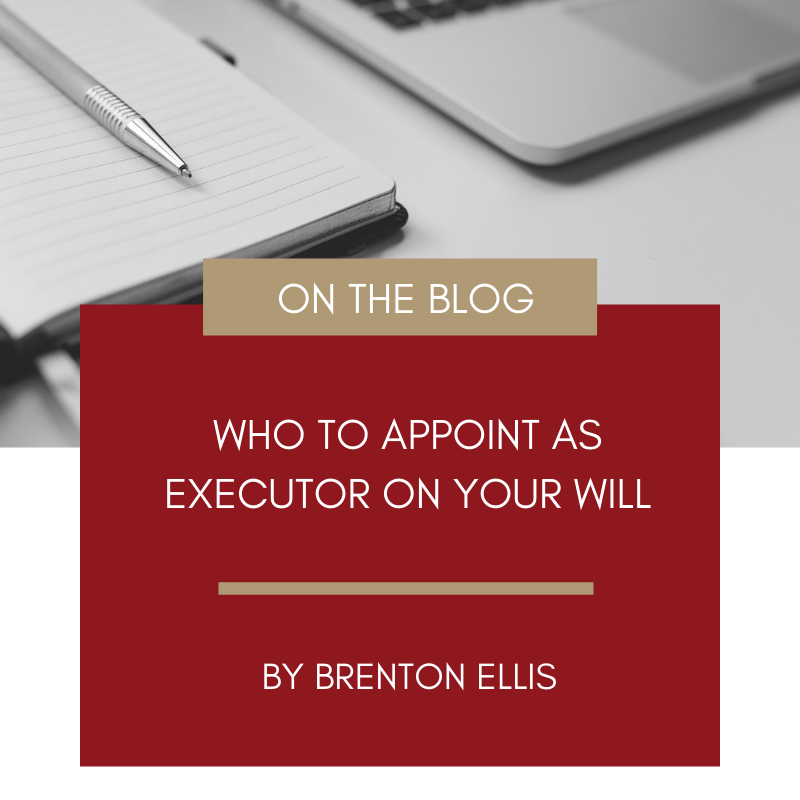Upon your death, an executor is faced with gathering all your possessions and distributing them according to the provisions of your last will and testament. Settling a simple estate seems a relatively easy task and in many cases executors are nominated without careful consideration of the consequences.
An executor calls for a combination of legal skill, knowledge of taxation, business acumen as well as the willingness and ability to collaborate with beneficiaries, creditors, pension funds and even business partners together with any employees during the administration of a deceased estate.
In terms of the law in South Africa, it is feasible to appoint a family member, friend and even a beneficiary as executor of your estate. However, the Master of the High Court will ordinarily require that when one, without the necessary qualification is nominated, must be assisted by a professional agent such as an Attorney, Auditor, Advocate or a Trust Company during the administration process. In this case, the executor that is nominated in the will is to employ an agent to administer the estate. Whilst the executor is still responsible for the finalisation of the estate, the day–to- day administration will be seen to by the agent the executor appointed.
Under these circumstances, your wish that a trusted individual/family member and/or friend is to act as executor and deal with your beneficiaries is not honoured.
It is therefore crucial to carefully consider certain factors before nominating anyone as executor of your estate. Keep the following points in mind when nominating an executor in your last will and testament:
1 Take into account the individual’s age and health that you nominate as executor. Most professionals work in a business that has continuity and will not be affected by immortality. Where you appoint relatives or friends, it is advisable to appoint someone in their place should they not be able to act upon your death;
2 You can nominate one or more executors, and you can nominate an alternative executor in case your primary executor is unable or unwilling to act at your death;
3 If you nominate a person without special qualifications, but who is a trusted person with integrity, you can also appoint a professional as a co-executor to administer the estate. This way, one of the executors is a trusted individual – a family member, friend concerned with the welfare of the family – and the other is a professional, with professional deceased estate management experience;
4 Remember being named the executor of a family member or friend’s estate can be overwhelming at a time when a person is grieving. If you get caught in disputes between members of the family, the tasks of being an executor can be overwhelming.
5 In many cases people think nominating “non professional” or a lay person as executor will save money. Currently executor’s fee is levied at a statutory rate of 3.5% on your gross asset value. Even a “non-professional” that is nominated as executor in a will is entitled to this fee. You can however, stipulate in your will that your estate must be administered at a discounted fee by your executor;
6 When nominating one or more of your beneficiaries as executor(s) can also be risky. In many cases, a trusted beneficiary with business skills and/or integrity is seen as a suitable executor. These kind of executors are entitled to executor’s fee and also an inheritance from the estate. The other beneficiary(ies) not appointed as executor, could feel that this is preferential treatment and unfair;
7 Where competency and impartiality are key requirements, you should look beyond your friends and family for a suitable executor. The most common mistake is made where a surviving spouse is appointed as executor in an estate where the deceased had children and a former spouse that might have maintenance claims against the deceased’s estate. The surviving spouse is the beneficiary and also the executor of the estate that must negotiate the claims of her stepchildren and the former spouse. In most cases the surviving spouse is seen as an executor that has an underlying interest as beneficiary and is not acting impartially;
8 Should you foresee possible complication(s) during the administration of your estate, for instance contributing rivalry, it is not wise to appoint any of the parties or a family member or friend as executor. Rather appoint someone that can maintain a “zone of privacy and objectivity” in which to make decisions, free of any interference of beneficiaries;
9 Although many professionals have the credentials to act as executors, you must bear in mind that many professionals specialise in other areas of their professions and are not as equipped to administer deceased estates such as professionals specialising in their own field. In many of these cases professionals will accept the appointment as executor to warrant the executor’s fee and appoint other professionals specialising in administration of deceased estates to administer the estate. Since the executor’s fee is shared between the two professionals the necessary professionalism and time might not be of essence where only one specialised administers the estate;
The following individuals cannot act as executors:
- A person that resides outside the republic without an address in South Africa; and/or
- Minors, lunatics and prodigals;
- An insolvent person.
To be an executor is an onerous responsibility and one which cannot be taken lightly. In your Will you will appoint an individual or individuals who will ensure that your wishes, as set out in your Will, are carried out. The responsibility of administrating your estate and carrying out your wishes in your will on your death falls on the executor(s) and therefore you should give careful thought to your choice of executor.
Contact Servo Fiduciary Services if you need a qualified and experienced Executor to administer a deceased estate on info@servofs.co.za.
